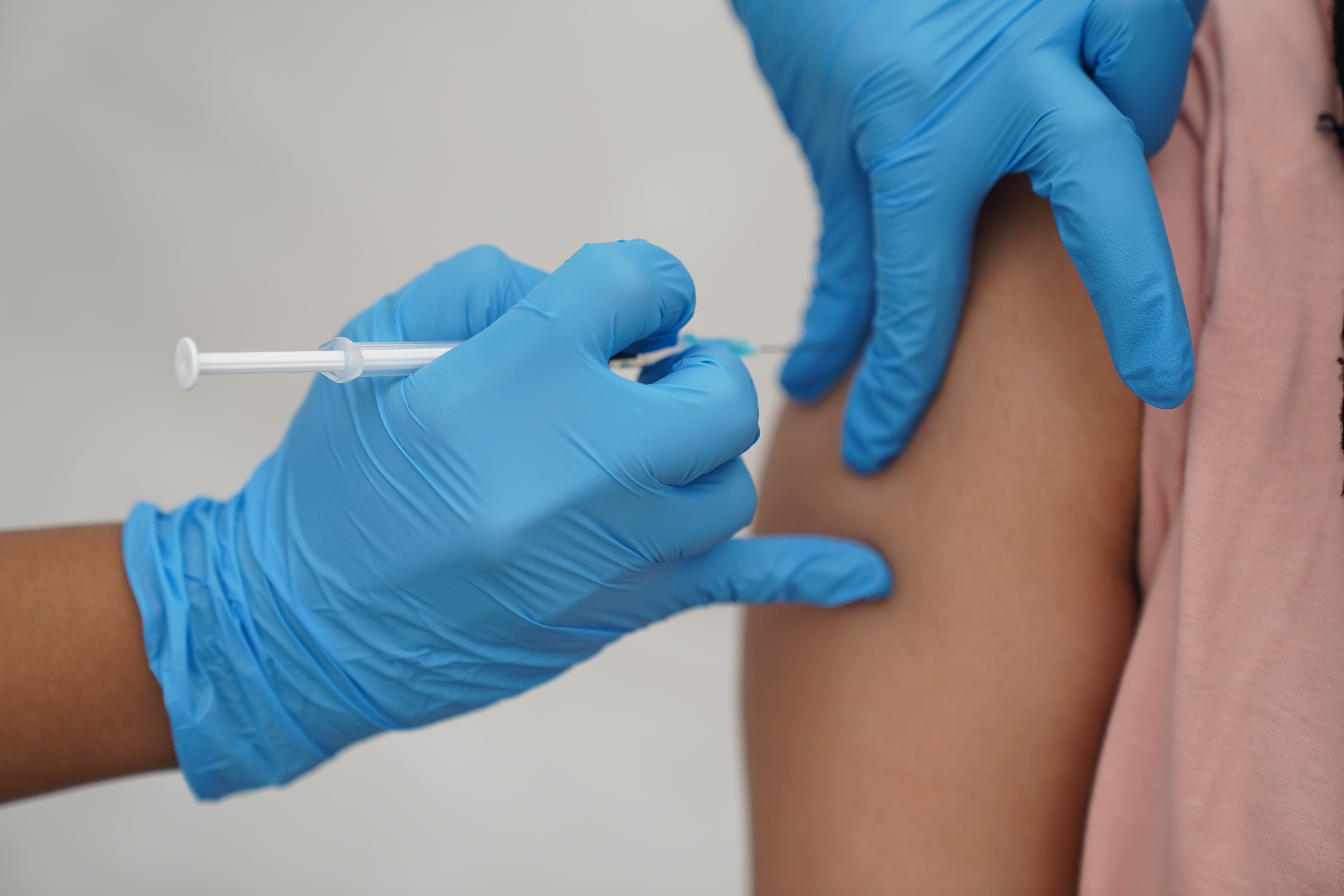Worst area for vaccine uptakes in the UK revealed
UK’s performance on vaccination was ‘slipping and varied’ before pandemic, say researchers

Your support helps us to tell the story
From reproductive rights to climate change to Big Tech, The Independent is on the ground when the story is developing. Whether it's investigating the financials of Elon Musk's pro-Trump PAC or producing our latest documentary, 'The A Word', which shines a light on the American women fighting for reproductive rights, we know how important it is to parse out the facts from the messaging.
At such a critical moment in US history, we need reporters on the ground. Your donation allows us to keep sending journalists to speak to both sides of the story.
The Independent is trusted by Americans across the entire political spectrum. And unlike many other quality news outlets, we choose not to lock Americans out of our reporting and analysis with paywalls. We believe quality journalism should be available to everyone, paid for by those who can afford it.
Your support makes all the difference.London has the lowest rates of uptake across key vaccines such as Covid, shingles, flu, and whooping cough, a new study has revealed.
“Widespread” differences across the country in the level of key vaccines have been found by health care policy consultancy Future Health.
According to an analysis of vaccine uptake for Covid, Shingles, Flu, Whooping cough, and Pneumococcal Polysaccharide vaccines, the lowest rates of uptake in 2021 were London and parts of the North West.
Twenty two of the 29 worst performing areas were in London, while poor performance across other major cities such as Birmingham, Manchester and Leicester was also noted.
The local authorities included: Manchester, Barking and Dagenham, Bexley, Thurrock, Newham, Greenwich, Enfield, Sandwell, Leicester, Islington, Merton, Camden, Redbridge, Haringey, Barnet, Waltham Forest, Tower Hamlets, Southwark, Southend-on-Sea, Lambeth , Salford, Hackney and City of London, Croydon, Kensington and Chelsea, Wandsworth local authority Hammersmith and Fulham, Wolverhampton, Westminster, and Birmingham.
The report says while the vaccine programmes in England were “world renowned” with high uptake levels across the UK, challenges were emerging within areas such as measles mumps and rubella vaccinations.
It said: “Before the arrival of the pandemic the UK’s performance on vaccination was slipping and varied. The Covid programme in some ways reflected this, particularly struggling initially to engage with certain communities and groups where vaccine uptake is typically lower.”
In August 2019 the UK lost its measles free status as vaccination rates fell. The difficulties faced in maintaining vaccination levels included pressures within primary care, low levels of uptake among certain populations and social media “fanning anti-vaccination sentiment.”
The analysis by Future Health has shown a similar trend of low uptake of vaccines within deprived communities, as has been reported for the Covid-19 vaccines.
However the variation uptake across poorer and wealthier areas was more stark with Covid-19 vaccines compared to shingles, flu, whooping cough, PPV rates.
The report said tackling regional variation in vaccine uptake would bring “considerable benefits” estimating that bringing the lowest performing areas in line with the highest would mean more than 1.1 million more vaccines would be administered.
This would include 700,000 more adults being fully vaccinated against Covid-19, more than one quarter of a million vaccinated against flu and more than 50,000 shingles vaccinations.
The researchers have recommended the government set clear ambitions for uptake of adult vaccinations in a new national strategy.
They also said vaccination information should be included with the NHS App as has been the case with Covid-19.
Richard Sloggett, programme director of Future Health said: “There are a number of reasons which could explain this vaccine hesitancy especially among Londoners. The Covid-19 vaccine programme revealed a particular scepticism towards vaccination among ethnic minorities and religious groups, pregnant women and people in particular occupations. There is also a strong correlation between people not being jabbed in more deprived communities. While clearly a number of these factors are present in cities across the UK, they are even more prevalent in the Capital.”
“Encouraging the uptake of different vaccines, especially among those who have previously been hesitant, is going to become increasingly important to how we tackle other healthcare conditions. The Government’s vision for cancer includes a focus on the development of new cancer vaccines; new vaccinations for flu and hospital acquired infections are also in the pipeline. Ensuring the widest access to these needs to be a central policy objective for the Government’s planned post Covid vaccination strategy.”
Join our commenting forum
Join thought-provoking conversations, follow other Independent readers and see their replies
Comments